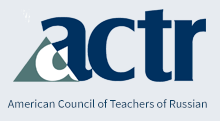Russian Language Journal
Keywords
Covid-19 pandemic, future planning
Abstract
1. Introduction At the time of publication of this special issue of Russian Language Journal, most language programs will have been teaching remotely or in a hybrid format for more than a year. This volume is a testament to the collective effort of administrators and instructors determined not to lose sight of the opportunities to learn from the pandemic and the emergency transition to remote learning. Although students are not represented here as authors, they contributed to these efforts, and hence they figure prominently in every article of the volume. Initial expectations for learning outcomes for them for online teaching may not have been very high, but as Merrill, Dengub, and Pastushenkov point out, it appears that language proficiency results from teaching online may be more encouraging than anticipated. As we prepare to return to in-person instruction in the Fall of 2021, there is no doubt that many of the lessons learned during the pandemic will impact both the short- and long-term future of our field. In that regard, a number of recurrent themes appear in this special volume: 1) we learned to make better use of our existing technologies; 2) student autonomy is crucial and we should be intentional about developing more autonomous, self-regulated learners from the very earliest levels of language learning; 3) differentiating instruction to meet diverse needs is possible in a more robust way given our experiences this year when many discovered new ways to teach to the whole class; 4) increasing student engagement and building a sense of community are key to our programs and student success; 5) cultural engagement and enrichment is an integral part of language learning not to be sacrificed because of a change in the medium of instruction; 6) we should perhaps rethink assessments to be more diversified and better reflective of student performance and progress.
Recommended Citation
Martin, C. L. (2021). Afterword: Looking to the Future after the Pandemic. Russian Language Journal, 71(2). https://doi.org/10.70163/0036-0252.1018


